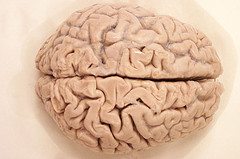Dementia: how do you know when they’ve gone?
Anyone who knows or lives with someone who has Dementia – or, for that matter, any Alzheimer’s disease – knows how hard it is. Of course, it manifests itself in many different forms; but, ultimately, it destroys a person, deprives them of their life, deprives them of living, reduces them to an object that can’t do anything. An invalid. Only sometimes, for Dementia is even more horrible for the way it chooses when it wants to affect the person; you can be guaranteed, however, that it is going to be when you least expect it.
Dementia is a cruel, insidious disease. It attacks the most spritely and happy of people, reducing them – slowly…naturally – to a mesh of jumbled-up thoughts, to someone who won’t even know their own name. Just think: this is someone who used to be able to make tea, wash themselves, travel around the world, and be happy.
You are completely trapped, essentially enchained by the disease itself
Oh, no, Dementia will ruin all of this, bit-by-bit destroying the cells in the brain responsible for memories. That’s what Dementia is: it is the brain slowly dying. That is the question, though, isn’t it, have you lost them; are they dead? Technically no, they are not dead. But there are times when I wonder whether death is poking his head and teasing me, showing that Dementia is not death, and death is waiting to come. In a way, you won- der whether death should have come earlier, or not.
I mean, the destruction the sufferer goes through when they have Dementia is incomprehensible. From being so confused, that they have to ask you whether you love them, to being so terribly frightened that the nurse who has come in to give them supper is going to kill them.

It is the onset of complete irrationality, complete turmoil. Yet, Dementia will give you days when you see the sufferer at their best yet, remembering your name, who you are, and accepting your kind offer of a nice cup of tea. Don’t be fooled: this is complete mockery. It is Dementia saying that it can go away, but that it chooses not to, about 99.9% of the time. Watching the person who has Dementia is tough enough; but having to see, and be a part of, the family of the sufferer disintegrate under the immense weight of emotional hardship is, perhaps, the hardest thing. It not only changes them; it changes you, too. Horribly ironic as it may be, you cannot forget the pain that everyone involved is going through.
Guess what? There is nothing you can do to help. You are completely trapped, essentially enchained by the disease itself, unable to do anything about it. Unfair, right? Of course, but multiply that powerlessness by approximately infinity and you have the helplessness of all those concerned.
The notion of ‘losing’ someone with Dementia is an inherently complex one, on many levels. To begin with, you have to try and comprehend the numerous meanings of the word ‘lost’. To lose means simply to not have any more/be deprived of something. But that’s the thing, isn’t it? When you know someone with Dementia, you really haven’t lost them, in the literal sense. This is because, the sufferer is not essentially being deprived of something; rather, on some days that thing – be it a memory, a feeling, a name – just doesn’t show. That doesn’t mean you have been deprived of it, but that – for a moment – it really doesn’t exist.
There is a dichotomy, though, for that something still does exist, just not at that particular moment. I hope, to anybody out there, that this article has been informative, even if it never happens to someone you know. There is one true fact, though: knowledge and understanding are good. Period.
[divider] flikr.com/euskalanato
flikr.com/georgia

Comments